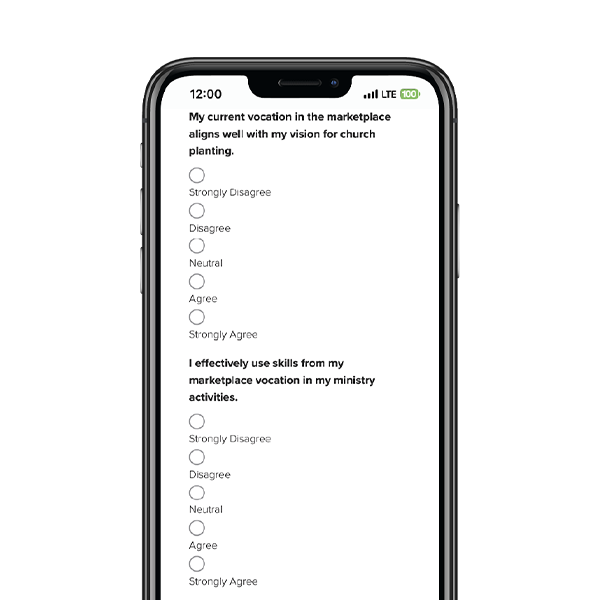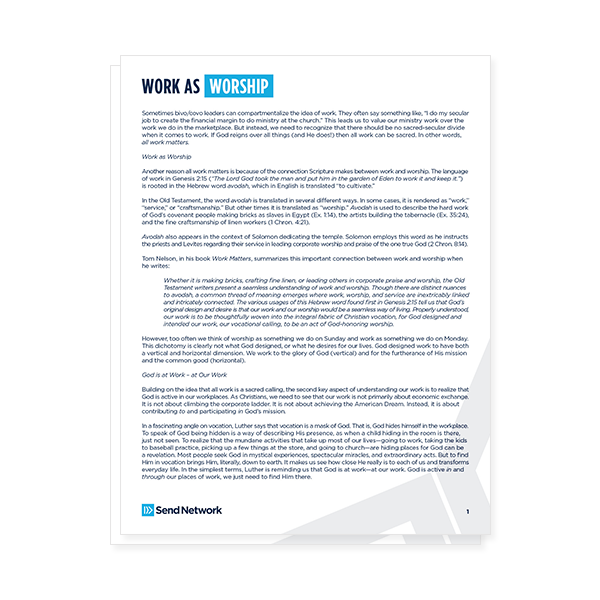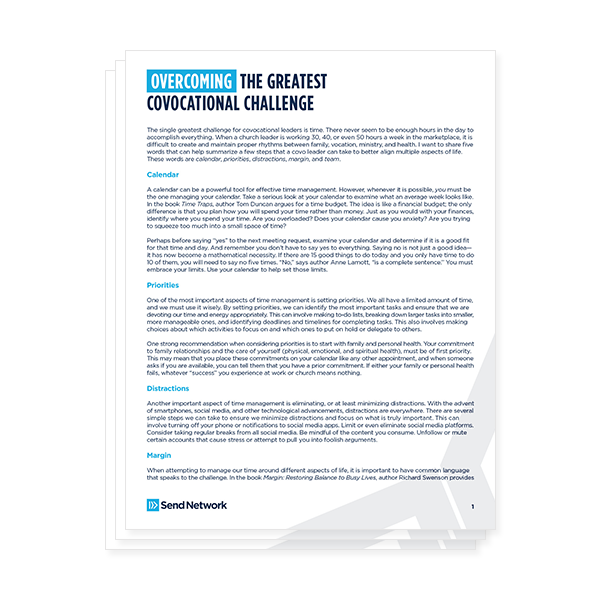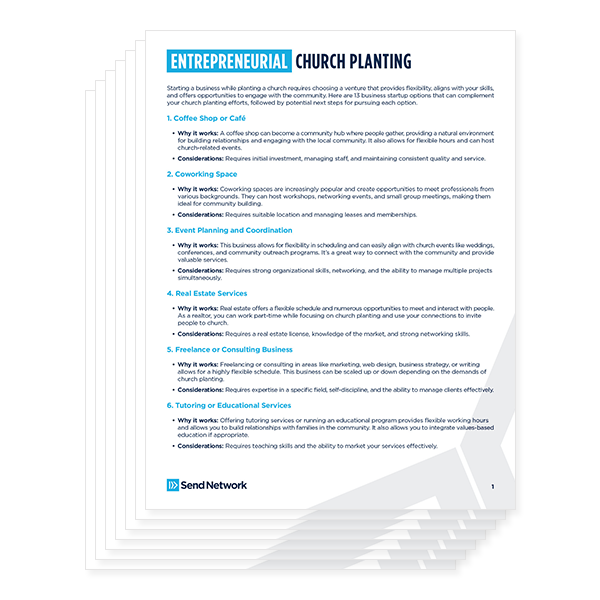By Dhati Lewis
The foreseeable future of church planting seems uncertain. We don’t know or have control over what it will look like, but we do have some control over the leaders who will ensure the mission moves forward.
If our churches are going to be healthy for the remainder of 2020 and throughout 2021, we need to focus on being and developing advocate leaders, missional leaders and repentant leaders.
1. WE NEED TO RAISE UP ADVOCATE LEADERS.
In Ephesians 4:11-13, Paul writes that God has given us these different types of leaders to equip the saints for the work of ministry.
The word “equip,” in the Greek, means to perfect or to adjust into place so all the pieces work together. It has the same root as the word used in Mark 1:19 when James and John were mending their fishing nets. To equip means to mend — to take the pieces that have torn apart and repair the damage.
Sin divides us and leads us to disunity and isolation. If we are the sheep and Jesus is our shepherd, the most dangerous thing for a sheep is to be separated from the flock and the shepherd. Isolation is deadly for sheep and God’s people, and the enemy wants to separate us so he can pick us apart.
As a leader and shepherd of your local church, your calling is to keep your sheep together. Like a doctor, you are to equip the saints, to mend your members together so they work in unity and harmony. The goal is that our people can move as a single body, doing the work of the ministry — reconciliation (2 Corinthians 5:19).
We are to reconcile as believers within our church so we can do the work of reconciling our neighbors. We reconcile with one another so we can offer reconciliation to the world.
With the acts of hurt and horror we’ve seen in recent days, the divisions that exist in the Church and the world are on full display, and the intensity of these issues may grow even stronger in the coming months with election season on the horizon.
To prepare for this new season, we need to raise up advocate leaders who are equipped to engage divisive issues with a biblical and balanced perspective. They need to have courage to run to the tension with a heart for reconciliation. They need to know how to create safe spaces for diverse people to authentically show up with one another.
To do this, we need to be intentional with our leadership development. Consider leveraging different platforms like coaching and teaching and residency experiences to infuse these principles and skills into your church culture.
If our churches are going to be unified, and if our churches are going to be able to offer reconciliation to our cities, then we must raise up advocate leaders who lead the way toward reconciliation. We must focus on equipping the saints now, on mending the saints together now and on cultivating unity now — because a unified church is the most effective missional church.
2. WE NEED TO RAISE UP MISSIONAL LEADERS.
When Jesus called his disciples he said, “Follow me and I will make you fishers of men.” From the very beginning He told them their mission, and He never lost sight of it. From the initial call all the way to the Great Commission, the mission of Christ’s followers was the same.
Today, it’s easy to lose sight of our mission.
Between the implications of the COVID-19 pandemic and the racial tensions in our nation, there are so many things we do not have control over. We may even feel helpless and powerless, but we need to remember that while we are powerless, we are not helpless.
We are powerless to stop the virus. We are powerless to stop racism. We are powerless to change people’s hearts. And we need to grieve these things. But even though we may be powerless, we are not helpless, and we are not hopeless.
Our mission has not changed.
Yes, we need to reevaluate our strategies, to get creative and try things we’ve never done before. But our identity has not changed even though many of our life rhythms have. And if our identity has not changed, then our mission has not changed.
We need to raise up missional leaders who have tools for contextualizing the gospel to this day, this time and this context. We need missional leaders who are passionate about seeing the gospel go forth — even in the hardest times.
One way to do this is to have specific types of trainings to equip your leaders with tools to contextualize the gospel to your community and the specific divisions you may face during election season.
3. WE NEED TO RAISE UP REPENTANT LEADERS.
When Jesus was beginning his earthly ministry He said, “Repent, for the Kingdom of Heaven is at hand.”
We tend to think repentance is just about the bad things we do, but to repent is to change the way we see. It is holistic transformation.
In a day where the latest hashtag can become our North Star — we need to repent. In a time where the voices of comfort, passivity, change, convenience or revenge can be so enticing — we need to repent.
We need to change the way we see Jesus. We need to change the way we see Christianity. We need to constantly re-align ourselves with who Christ is and who He says we are. We need to repent.
Jesus tells us we need to repent because the Kingdom is at hand. In the Sermon on the Mount, Jesus said God’s Kingdom is about a people whose hearts belong to Him. It is about a people whose hearts are repentant, who are poor in spirit, who embrace their need, who mourn, who hunger and thirst for righteousness. A people who are peacemakers, who are merciful, who are persecuted. This is about a people who belong to Jesus.
We desperately need more leaders who are willing to repent and change their mindsets to align with Christ and His Kingdom. There are so many voices in our society today. So many voices that sound pleasing to the ear. So many voices to distract us. So many voices that sound similar to the voice of Christ.
But they are not His voice.
We need leaders who are willing to repent and turn toward the voice of Christ.
If we raise up advocate, missional and repentant leaders who equip the saints to be advocate, missional, repentant churches, then we will truly be a city on a hill. A light the darkness cannot overcome. A people who are known for their love.
Published June 5, 2020




